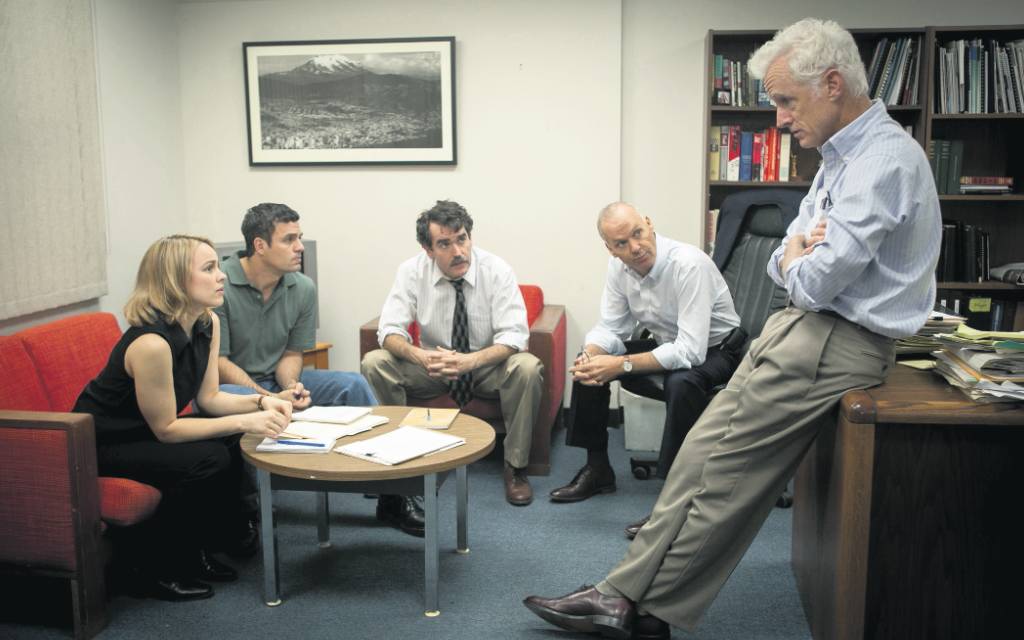Spotlight film review: a real-life story that’s as slow and forceful as a steamroller
15 | Dir. Tom McCarthy | ★★★★☆
The Da Vinci Code was ridiculed for the moment Tom Hanks cried, “I need to get to a library. Fast!” In Spotlight, a trip to the library is a genuinely exciting proposition.
It’s a nuts-and-bolts examination of the Boston Globe’s exposé of systematic child abuse within the Catholic church, involving at least 90 priests in the city alone. It begins when a criminal is sprung out of jail by a shadowy organisation. But no shots are fired; nobody even raises their voice – he simply walks out while his victims continue to draw in their colouring books.
It’s a precedent that continues throughout the film – director Tom McCarthy doggedly refuses to be rushed. There are no action sequences, no running after suspects or hiding in shadows. His film moves with the quiet force of a steamroller, carrying with it a catastrophic emotional payload.
For this to work you need both an exceptionally well-paced script, and a brilliant cast, both of which Spotlight has. As the head of the eponymous Spotlight investigations unit, the resurgent Michael Keaton subtly conveys the anxiety and conflict involved in uncovering a truth that will tear a community apart, hinting at the reasons apparently good people were so willing to look the other way. Mark Ruffalo’s Michael Rezendes, meanwhile, quivers with an anxious energy, like a greyhound straining at the lead, unable to stand still while the weight of the story bears down on him.
But it's the supporting cast, especially the victims, that really makes the drama come alive. They’re not just pieces in a macabre puzzle, they’re real people struggling with the life-changing consequences of their childhood traumas.
A post-credits sequence showing the dozens of locations around the world where similar abuse scandals were uncovered is a chilling reminder of how important the Globe’s story was. But Spotlight never feels worthy – like its characters, it’s dogged, quiet, systematic, seeking the truth without feeling the need to sensationalise it.

